|
There is a chapter in my memoir (the one we are all praying will find an avenue for publication soon) entitled “Christians Believe in Resurrection.” Here’s a portion I am considering today: While I was a chaplain, I watched a group of doctors resuscitate an elderly gentleman. Resuscitation is a gruesome act. It often involves broken bones and blood. While physicians monitored blood pressure and breathing, I monitored grief and loss. Everyone in the room wanted to save life. I wanted death. I wasn't callous to the family or the doctor's desire to prevent death. I get that not everyone is comfortable with “do not resuscitate” orders. The doctors did not save this man. He suffered yet another major heart attack. And his last minutes on earth were traumatic. Pete’s last moments were complicated just like that experience I had as a chaplain. Pete had a major heart attack. I watched it happen in his eyes as he reached for me and said, “Help.” Then he fell back on the bed, gasping for breath. I held his torso in my arms as I reached for the phone to call 911. He took four labored breaths as I cried and whispered “no, no, breathe honey, breathe honey, no, no.” And then I believe he was gone. But the switchboard director answered the phone and asked me to get him onto the floor. She instructed me to do chest compressions. And then the squad arrived and they took over. And then at some point they thought they saw cardiac activity so they continued. And then finally, I asked, “are we doing the same thing over and over and getting the same response?” There was a pause and this time I did not whisper, I waved me arm and said, “Everybody stop. Really. Stop. Death is ok.” Here's a bit more from the memoir: “Resuscitation is about holding onto the life we have. We hold onto what we have; we cling to our lives – exposing our lives to traumatic acts of resuscitation just to hold onto what we know. We try all kinds of things to resuscitate the life that we know… There are obviously some situations that require some more grit. Sometimes in life, we need to keep working at something. But there are a lot of times where we need to stop for a second and imagine an end. Stop. Let go. Allow death to happen. Embrace loss. Wait for resurrection. When Pete and I can no longer do certain things or go certain places, we adjust and sometimes those adjustments seem bitter. I have grown to understand that bitterness is a sign that I am still trying to resuscitate. I don't want the life we imagined to die. I want to try to keep it alive. I cling to the life we had. I cling to the dreams we dreamed together. But when a dream is dying, or MS has taken Pete's ability to walk, I want to have the courage to say, “Do not resuscitate.” As you can imagine, I am having to imagine a new life. A resurrected life. But at the same time I am most certainly clinging to the life we had. I am overwhelmed with wanting to maintain or recreate the family life we had, the home we had, the comfortable conversation I so deeply miss. I worry about whether my life will work without him. I worry if I will know how to be who I have become – a stepmother, a grandmother, a pastor, a writer, a friend, even a lover – without him. But “who I have become” is not tangible. There’s nothing physical to hold onto. In fact, all of the tangible things are either donated, packed or treasures that we have kept. We have donated Pete’s clothing, the dishes we used during our life together, many of our books. We’ve thrown away cds and packed up pictures. In one week, movers will pile our “life” together into a 10x15 climate controlled box, a tomb if you will.
The Christian scriptures say Jesus was in the tomb for “three days.” Three days is a literary device that essentially means “when the fat lady sings.” Jesus was in the tomb until the “fat lady sang” or “until it was time” or “when God was good and ready.” The “three days” is when the magic happens, the miracle of new life from death. He missed it. Pete missed Mateo’s third birthday. I made a 3D firetruck cake that sliced easily and everything. Pete would have remembered the meltdown I had last year when the dump truck cake fell apart and Julia and I “fixed it” by throwing a bunch of broken vanilla wafers on it and creating a whole new 3D cake. “No one will know, Mommom,” she said. And they didn’t. But this year the cake worked just as planned. And the kids helped me decorate it and… Pete missed it. And I couldn’t help but think about how Mateo being three will only know Pete from what we tell him. And although he’ll hear how Pete was beyond joy, without words at the adoption of Mateo, Mateo will never hear Pete tell him about how adopting a baby was a dream come true for him. He’ll never hear Pete talk about his hope for a world that loves one another, across racial and ethnic, social and economic barriers. He’ll never hear Pete talk about camping out at the Washington Monument and being jarred into adulthood when armed military personnel monitored their peaceful protest. He won’t hear Pete talk about; he will hear us talk about it. But it’s not the same. Pete is missing out on life. And Mateo is missing out on life with Pete. Pete missed Charlottesville too. And this was when I realized it wasn’t just that Pete was missing out but that “we” were missing out on experiencing life together. I didn’t miss out on this past weekend’s events. I am not missing out on trying to figure out what kind of world I live in now. I am in the thick of it but my partner and best friend is not here with me and so I’m missing being part of a “We.” I can’t help but think if I were a “We” still, I would have had a thoughtful, fruitful conversation about race and violence, militia and the first amendment. If I were still a “We,” I would have gained a historical perspective that I have grown to assume is readily available to me. And now I am grasping for the questions to ask other that would get me somewhere near that conversation that would be happening in Pete’s head. I want to be part of that conversation and I used to be part of that conversation – every day, but especially when horrible things happened. Pete and I loved to talk to one another. About anything. Neither of us danced on the surface of life. We loved the conversation about what makes life worth calling it life. And so when people walked into the University of Virginia wearing khakis and carrying torches, I don’t want to search the internet for good journalism, I want to ask Pete what he sees and what he thinks. I want to lay in bed with him, my arms wrapped around him, his arms wrapped around me. I want the two of us to shed tears together for a country we love but no longer recognize. I want the two of us to pray fragments like,
Dear God, what is happening? Dear God, we are sorry - for our part - implicit and complicit. Dear God, what the hell is happening? Together, our prayers were never "put together." They were honest and vulnerable. They spoke of our sinful nature and how we were at a loss as to what to do next. And now I am left with my own prayers; there is no "we" anymore, just “me.” And it’s so much less than “we.” And so it’s not that “he” missed Mateo’s birthday or “he” missed Charlottesville, “we” did. We missed it. And “We” are going to miss a lot of things. 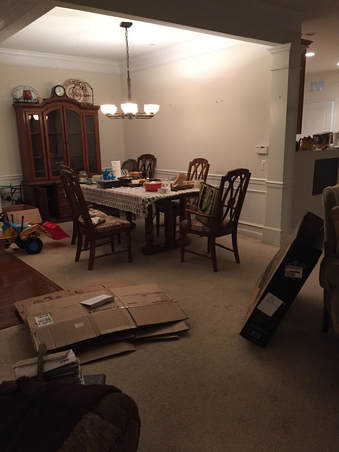 I promised myself I'd update the blog once/week and then I also promised myself that some weeks I might only have picture to share. I've reached that week. I've started to pack up my house. This has included taking an inventory of what I wish to keep, what I will use, what I will imagine in my life moving forward. If you know me, I really have no problem throwing things away. Purging is cathartic (for me.) And so I can only imagine that I will eventually be opening boxes and wonder, "did I really throw out the dish drain? What was wrong with the dish drain?" And joking aside, in a moment of rash purging the other day, I threw out the key to a small storage closet in our building. And I didn't realize it until I needed the key. Ugh. 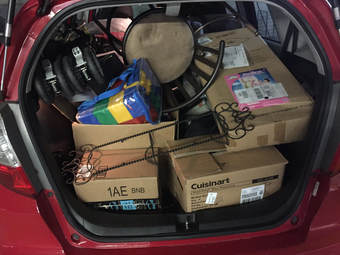 We've also taken three full car loads to the local Good Will. That's been great and gives me a little bit of help with my, "look how much stuff you're putting in a landfill" guilt. Having to imagine what my life will be is the most ridiculous idea that it's made it that much easier for me to settle into bedroom three at Dan and Faith's house. I've given myself the freedom to grieve, to reflect, to cry, to laugh. Eventually, I will begin to imagine what is next. In the meantime, Julia and I are playing monopoly. She's killing me. And if I had the brain space or the reflection time, perhaps I would make some grand connection between how I'm trying to figure out my next move, hoping to pass Go and collect $200 as often as possible. I might understanding why I mortgaged Water Works just so I could have another property with the same color. I think it's fair to share also that Pennsylvania Avenue doesn't look too appealing to me with its current residence. And maybe I'll ask my therapist what she thinks about me using the iron as my playing piece. “No one ever told me that grief felt so like fear. I am not afraid but the sensation is like being afraid.” These are the first words of C.S. Lewis’ renowned book A Grief Observed. In this honest and thoughtful memoir, he recounts so much of the chaos that occurred within his mind and body after his beloved died. I’ve read it twice since Pete died and I’m still mostly stuck on that first thought. Grief feels like fear. For example, when I get in my car alone, a funny things happens at about mile 3. Without prompting, remember the moment Pete stopped breathing or I remember I have to pack up my house in the next six weeks or I remember that I don't really know how to do life without him. My breathing changes. And I feel unrest. This is the same feeling as fear. It’s fight or flight time. You see fear comes to us from our amygdala. The amygdala is part of our animal brain. It’s lodged deep in the cerebral cortex and it is part of our limbic system. It controls memory, our decision making, our emotional reactions. It gives us fear… and I’m going to say grief too. Grief comes from memory. Grief is a much deeper seated emotion. It’s not cognitive. Dr. Bessel Van Der Kolk is the Medical Director of the Trauma Center at the Justice Resource Institute in Brookline, Massachusetts. He’s also a professor of psychiatry at Boston University Medical School and in an interview with Krista Tippet, he said, “We have these two different parts of our brain. Our animal brain makes us go to sleep, and makes us hungry, and makes us turned on to other human beings in a sexual way, stuff like that. Then we have our rational brain, the Broca’s center, which is sort of the part of your brain that helps you to reason, understand and articulate things. It also allows us to get along with other people in a civilized way.” These two parts of our brain are not connected. That’s why when we become upset, our ability to articulate disappears. (And this also is why our political discourse has become uncivilized, irrational and nonproductive.) So what is a girl to do when she’s at mile three and her amygdala hijacks her brain? For that I turned to yet another interview with Krista Tippett. In February of 2016, she interviewed, Dr. James Doty, a clinical professor of neurosurgery at Stanford University and founding director of the Center for Compassion and Altruism Research and Education. Dr. Doty is at the forefront of how our mind communicates with our bodies. Dr. Doty talks about how we all have to deal with the “The baggage of evolution: the fight or flight response that is linked to violence and tribal conflict.” “When we are fearful, we have a tendency to shut down. We don’t want to have new experiences. We want to have familiarity, which is typically with people who look like us, act like us, think like us. When we shut everything down, it gives us a sense of being safe but it also keeps you on pins and needles waiting to be attacked.” Do me a favor and read that last paragraph again… because I feel like that several times a day. I live with an overwhelming feeling of being unsafe. My shoulders are constantly riding up my neck and my arms, my biceps in particular are always flexed. How do we deal with this baggage from evolution? How do we bypass the amygdala? There has got to be a way to get my animal brain to communicate with my cognitive brain so that I can grief in a productive, soothing way.
Well… listen to this. Dr. Doty has been studying the effects of meditation and mindfulness on our brain. With a meditation practice for as little as two weeks, we see lower blood pressure, a change in the release of stress hormones and a strengthening of the immune system.” Basically, practices like meditation or mindful breathing connects our parasympathetic nervous system with our with our vagus nerve. The vagus nerve is the communication method between the heart and brain. So a funny thing happened yesterday around mile three when I was alone in my car. My breathing changed. I felt unrest and I my brain started toward the direction of running in circles of things I could do or should do. And instead, I took a deep breath. And I felt my body present in my car. I breathed again. I looked out the window and noticed a specific tree, a specific house, something that was present, here and now. Then I breathed again, and again, slowly, intentionally until the unrest passed. Take that amygdala. |
Books I'm currently reading:Archives
April 2022
Categories |
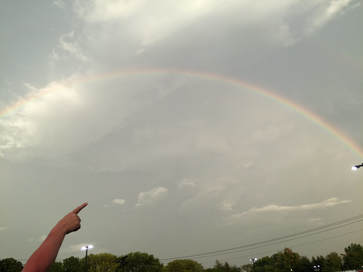
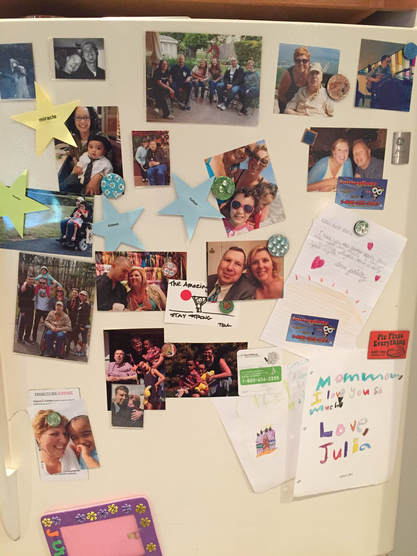
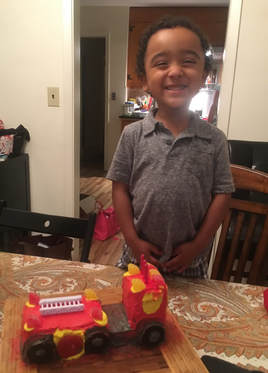
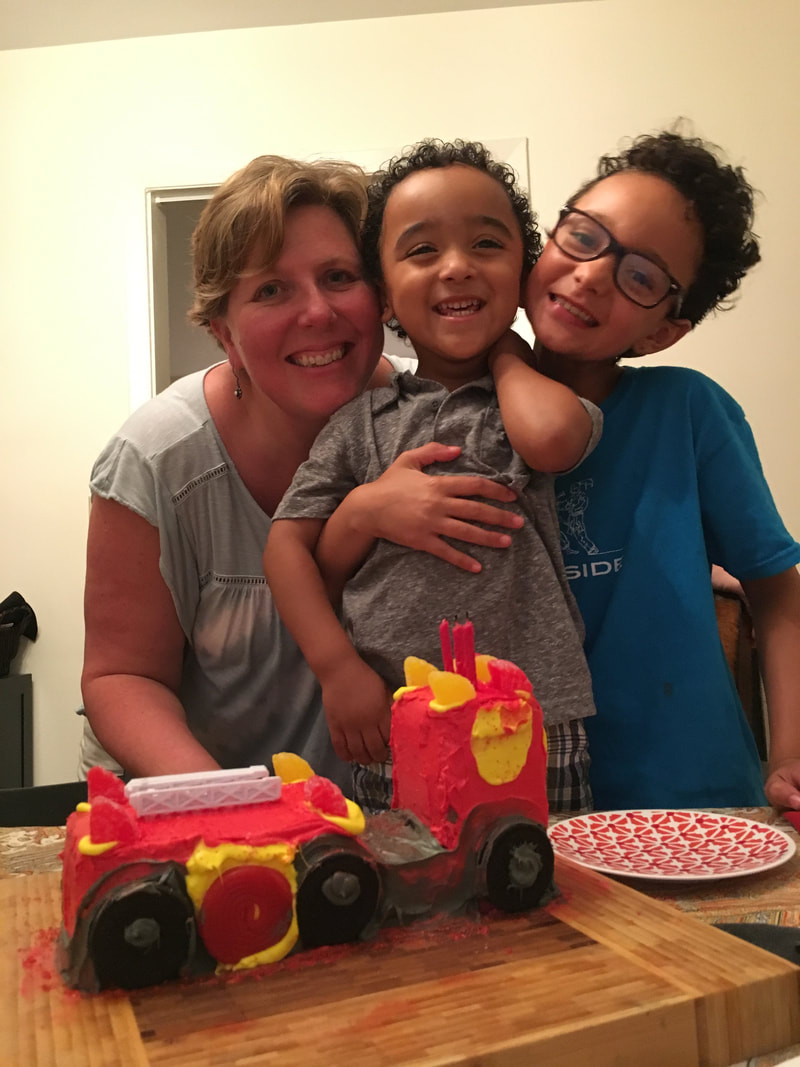
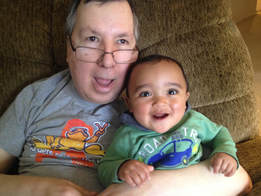
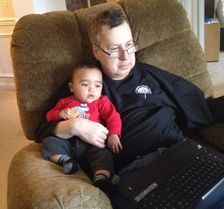
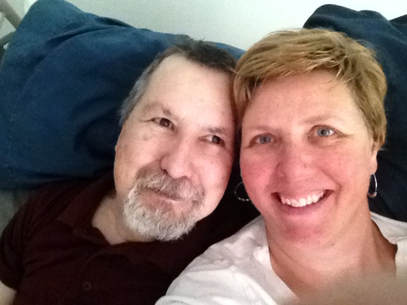
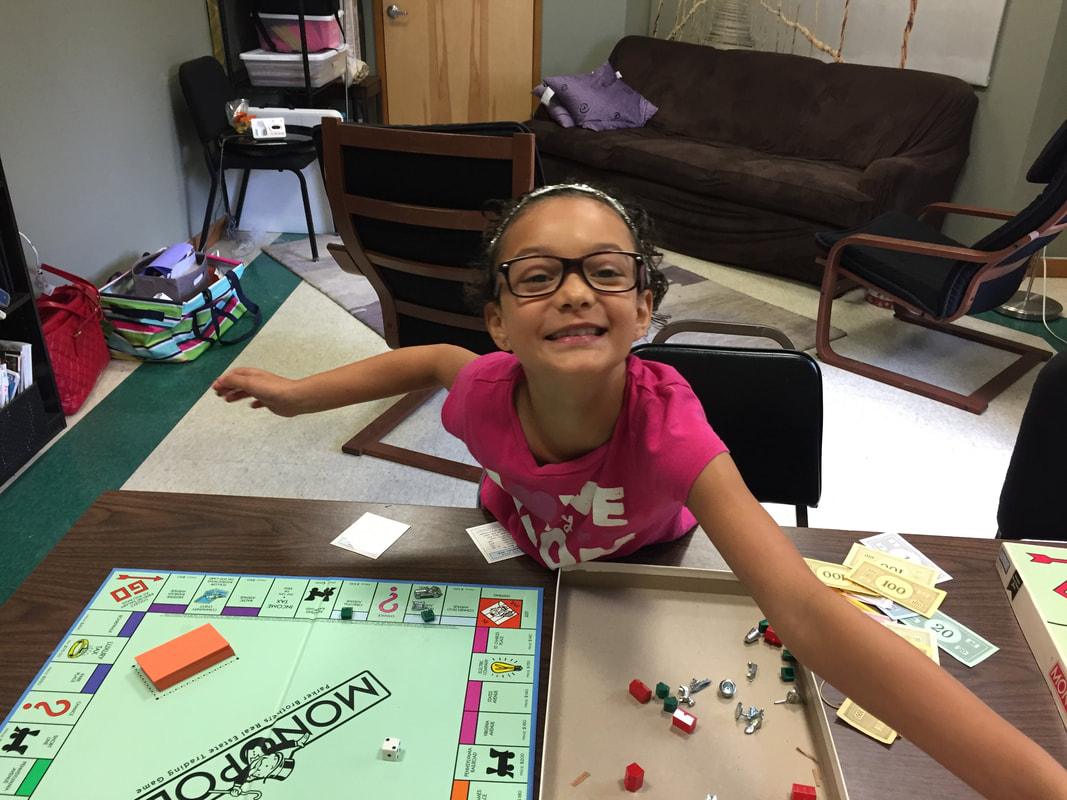
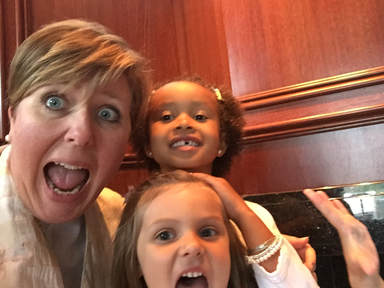
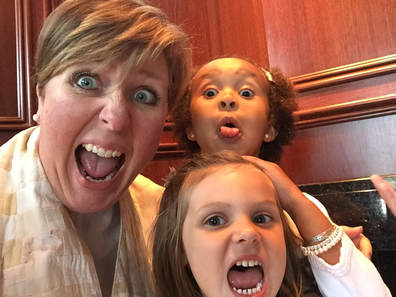
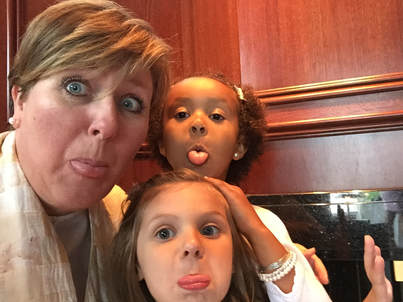
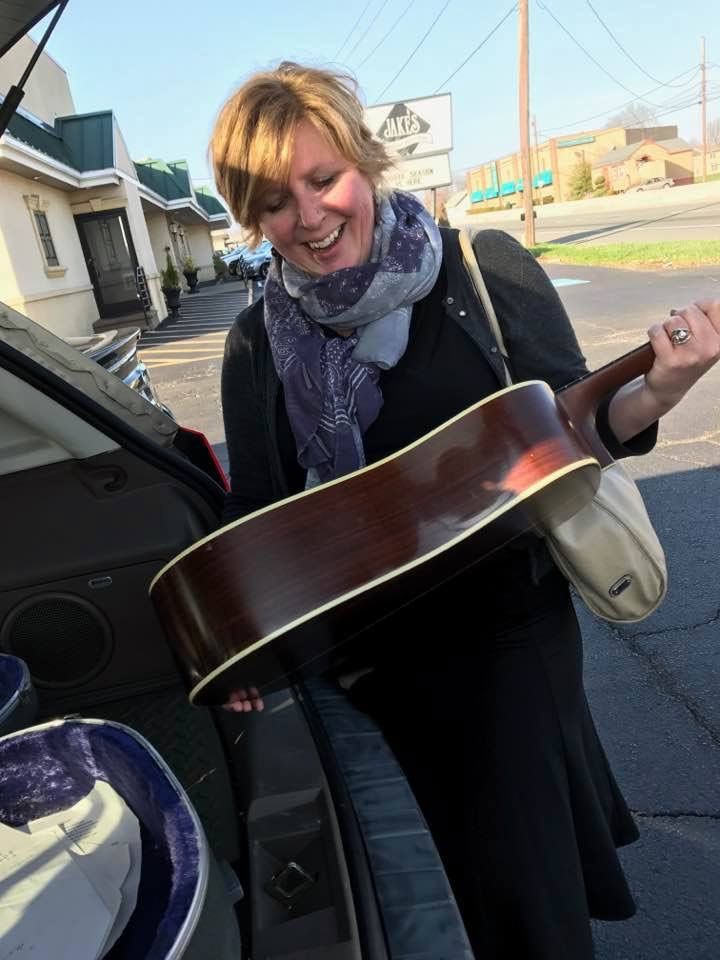
 RSS Feed
RSS Feed








